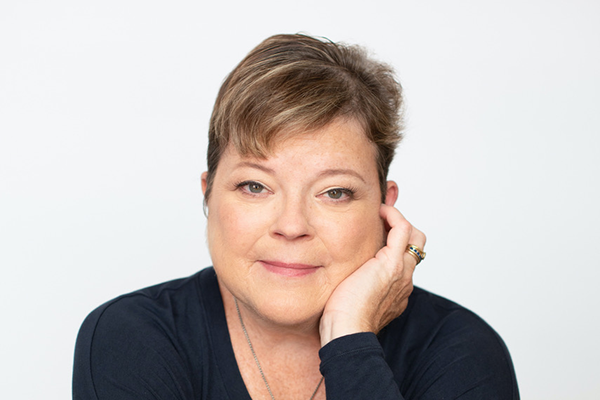Advice from a Two-Time Cancer Survivor
for the Newly Diagnosed and Those Who Support Them
by Christine Shields Corrigan
For years, a poster has hung above my desk with words from the writer, Fran Lebowitz: “Think before you speak. Read before you think.” In my view, the same rule should apply to cancer conversations. I say instead of offering advice, silver linings, or quests for a cause, simply connect with those friends or family members: they’re the same people they’ve always been. Tell them that you care about them. Acknowledge that what they’re dealing with must be terribly hard. Tell them you’ll support them in whatever way they need.
Or, if doing is more your thing, offer meals or a meal delivery from a favorite restaurant, transportation to treatment, help with household chores, or an outing for coffee (then follow through).
Having a Go-To Answer
After being on the receiving end of too many difficult cancer conversations, I came up with a neutral, yet firm, response to deal with the many advice givers, however well-meaning their intent. It went something like this:
Thank you for your concern. I’ve put together a terrific team of doctors and other medical professionals whom I trust. I’m relying on their expertise to guide me in making these important decisions during this very stressful time in my life. But I’d love to hear about what you’re reading now, or what your favorite Netflix show is. I’ll have a lot of down time in the next few months.
This allowed me to be polite and set my boundaries and get some great Netflix recommendations, like The Crown, Call the Midwife, and Outlander.
Don’t be afraid to craft your own individualized go-to answer. Then, practice saying it so you can use it when a friend, relative, or stranger offers advice that you don’t need or want.
Inspiration
During treatment, friends and family members often told me how inspiring, brave and how much of a fighter I was. But I didn’t feel like any of those things most of the time: I was scared, anxious, and unhappy. Instead of making assumptions about the emotional state of individuals with cancer, tell them how they appear to be handling they’re situation with strength, grace, or good humor—whatever fits or describes them. Then, let them talk about how they actually feel.
Music or Other Distractions
For cancer survivors, listening to music is a fabulous distraction from all the waiting we have to do: we wait for appointments, wait for labs, wait for hours as infusions drip slowly into us, wait for radiation therapy, and so on and so on. One of my friends, a lymphoma survivor, made a playlist of her favorite 80’s dance music and listened to it before every scan or treatment because it made her feel good. I did something similar, although my playlists were mash-ups of my favorite 70’s classic rock artists, 80’s alternative, and electronic dance music.
For me, reading was my go-to distraction more than music. During my cancer treatment, I stuck to lighter books: historical fiction, gardening books, some memoir, and comedy.
Ribbons: Not Everyone Loves Them
This may surprise some folks, but not everyone loves awareness ribbons, pink or otherwise. Some patients love them and take inspiration from them, but others don’t. Be aware and have a conversation before you go out and spend your cash on beribboned shirts, pins, hats, bracelets, or socks. Make sure the person you’re buying for is cool with the ribbon thing.
Soothing Socks
Hospitals, doctors’ offices, examination rooms, infusion centers, and radiation therapy treatment rooms are cold, cold places. I don’t like being cold. I like having cold feet even less. So, I looked for warm comfortable socks to wear when I was in treatment.
I loved the soft, aloe-infused socks that friends gave me. In addition to being warm, they helped my dry skin. A friend and survivor loved Note to Self socks, which have uplifting messages on them.
Christine Shields Corrigan, a two-time cancer survivor, wife, and mom, gives voice to the beautiful ordinary in her lyrical and practical essays. Her work about family, illness, writing, and resilient survivorship has appeared in a number of outlets. This essay is based on an excerpt from her book Again: Surviving Cancer Twice with Love and Lists (Koehler Books).
A graduate of Manhattan College and Fordham University School of Law, Chris teaches creative nonfiction writing for an adult education program, provides writing workshops for cancer support groups, and serves on the programming committee of the Morristown Festival of Books.
You can find Christine on her website (ChristineShieldsCorrigan.com) Twitter (@cpcorrigan2), Facebook (@christine.s.corrigan) and Instagram (@cpcorrigan).
Everyone has a unique story to share. Do you want to share your survivor story? We consider a cancer survivor to be anyone living with a history of cancer – from diagnosis through the remainder of life. Here are our submission guidelines.


